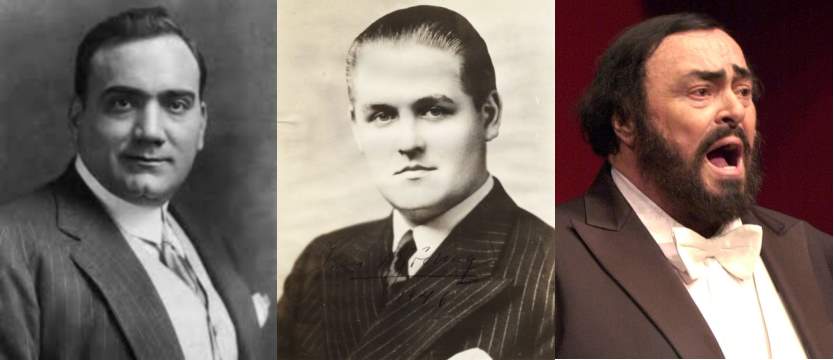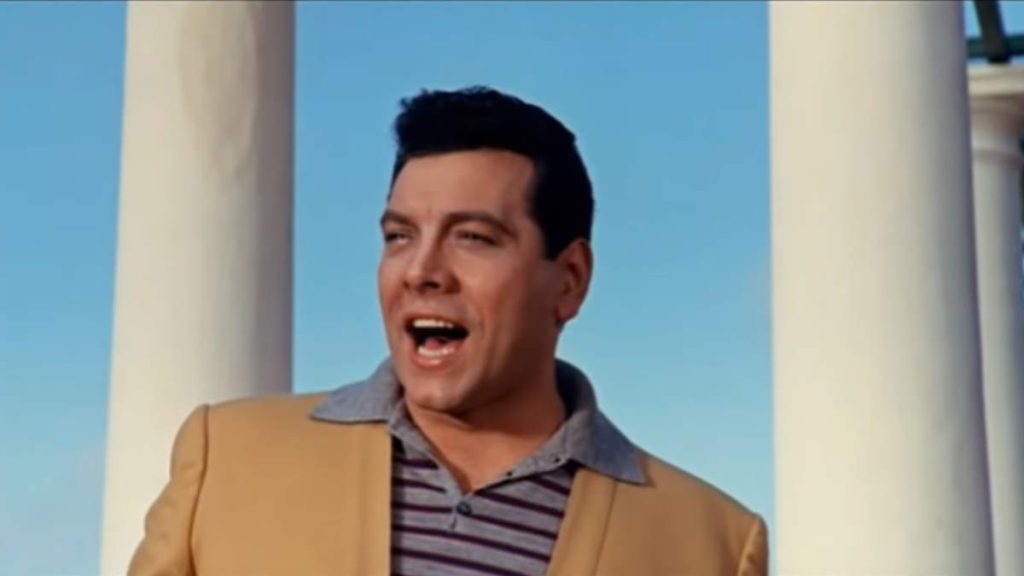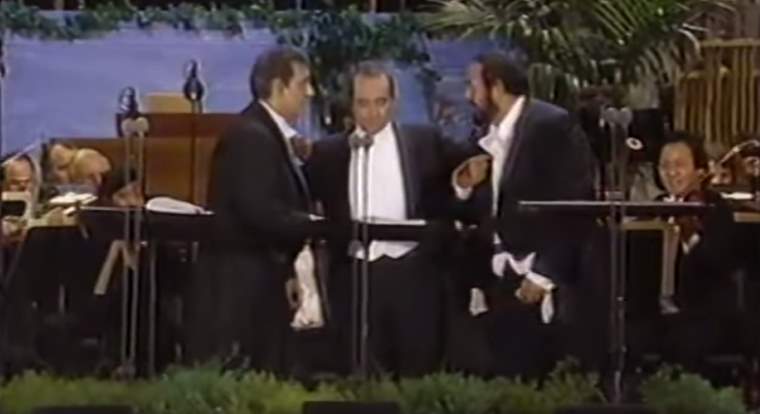A beautiful version of the famous Neapolitan song “‘O Sole Mio”, sung by Mario Lanza, the American tenor, actor, and Hollywood movie star of the late 1940s and the 1950s. The clip is from the 1959 film “For the First Time“, which was the last film that Mario Lanza made.
“‘O sole mio” is a globally known Neapolitan song written in 1898. Its lyrics were written by Giovanni Capurro and the music was composed by Eduardo di Capua.

Related: ‘O Sole Mio from three great tenors
Mario Lanza
Mario Lanza (born Alfred Arnold Cocozza; January 31, 1921 – October 7, 1959, in Philadelphia, Pennsylvania) was exposed to classical singing at an early age by his Abruzzese-Molisan Italian parents. His mother, Maria Lanza, was from the town of Tocco da Casauria a province of Pescara in the region of Abruzzo. His father, Antonio Cocozza, was from the town of Filignano a province of Isernia in the region of Molise. By the age of 16, he began studying to be a professional singer.
After appearing at the Hollywood Bowl in 1947, Lanza signed a seven-year film contract with Louis B. Mayer, the head of Metro-Goldwyn-Mayer who saw his performance and was impressed by his singing. Prior to this, the adult Lanza had sung only two performances of an opera. The following year (1948), however, he would sing the role of Pinkerton in Puccini’s Madama Butterfly in New Orleans.

Related: Mario Lanza sings Come Prima
His movie debut was in That Midnight Kiss (1949) with Kathryn Grayson and Ethel Barrymore. The following year, in The Toast of New Orleans, his featured popular song “Be My Love” became his first million-selling hit. In 1951, he played the role of Enrico Caruso (1873–1921), his tenor idol, in the biopic, The Great Caruso, which produced another million-seller with “The Loveliest Night of the Year” (a song which used the melody of Sobre las Olas). The Great Caruso was the top-grossing film that year.
The title song of his next film, Because You’re Mine, was his final million-selling hit song. The song went on to receive an Academy Award nomination for Best Original Song. After recording the soundtrack for his next film, The Student Prince, he embarked upon a protracted battle with Studio Head Dore Schary arising from artistic differences with director Curtis Bernhardt and was eventually dismissed by MGM.
Lanza was known to be “rebellious, tough, and ambitious”, and during most of his film career, he suffered from addictions to overeating and alcohol which had a serious effect on his health and his relationships with directors, producers, and, occasionally, other cast members.
Hollywood columnist Hedda Hopper writes that “his smile, which was as big as his voice, was matched with the habits of a tiger cub, impossible to housebreak”. She adds that he was the “last of the great romantic performers”. He made three more films before dying of an apparent pulmonary embolism at the age of 38. At the time of his death in 1959, he was still “the most famous tenor in the world”. Author Eleonora Kimmel concludes that Lanza “blazed like a meteor whose light lasts a brief moment in time”.
O Sole Mio Lyrics
Neapolitan lyrics
Che bella cosa è na jurnata ‘e sole,
n’aria serena dopo na tempesta!
Pe’ ll’aria fresca para già na festa…
Che bella cosa na jurnata ‘e sole.
Ma n’atu sole cchiù bello, oi ne’,
‘o sole mio sta nfronte a te!
‘o sole, ‘o sole mio, sta nfronte a te,
sta nfronte a te!
Quanno fa notte e ‘o sole se ne scenne,
me vane quasi ‘na malincunia;
sotta ‘a fenesta toia restarria
quanno fa notte e ‘o sole se ne scenne.
Ma n’atu sole cchiù bello, oi ne’,
‘o sole mio sta nfronte a te!
‘o sole, ‘o sole mio, sta nfronte a te,
sta nfronte a te!
English translation
What a beautiful thing is a sunny day!
The air is serene after a storm,
The air is so fresh that it already feels like a celebration.
What a beautiful thing is a sunny day!
But another sun that’s brighter still,
It’s my own sun that’s upon your face!
The sun, my own sun, it’s upon your face!
It’s upon your face!
When night comes and the sun has gone down,
I almost start feeling melancholy;
I’d stay below your window
When night comes and the sun has gone down.
But another sun that’s brighter still,
It’s my own sun that’s upon your face!
The sun, my own sun, it’s upon your face!
It’s upon your face!
Sources
- Mario Lanza on Wikipedia
- ‘O sole mio on Wikipedia

echt een zanger uit de duizend